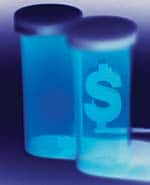An article published online on March 6, 2015 in Psychiatry Research reports an association between depression in young women and reduced vitamin D levels.
The current study included 185 female undergraduates residing in the Pacific Northwest during fall, winter and spring academic terms. Participants rated their depressive symptoms weekly for four weeks. Blood samples collected at the beginning and end of the study were analyzed for vitamins C and D3.
Insufficient vitamin D levels of less than 30 nanograms per milliliter (ng/mL) were detected in 42% of the women at the beginning of the study and among 46% at its conclusion. The incidence of insufficiency was 61% in non-white women, in comparison with 35% among the rest of the group.
Clinically significant depressive symptoms were reported by 34%-42% of the participants over the course of the study. Having a low initial level of vitamin D3 was a predictor of depression across all weeks of the investigation. According to authors David Kerr of Oregon State University and his associates, there was evidence that the observed reduction in depressive symptoms that occurred in the fall could be explained by increased levels of vitamin D.
"It may surprise people that so many apparently healthy young women are experiencing these health risks," Dr Kerr remarked. "Vitamin D supplements are inexpensive and readily available. They certainly shouldn't be considered as alternatives to the treatments known to be effective for depression, but they are good for overall health."
"Depression has multiple, powerful causes and if vitamin D is part of the picture, it is just a small part," he noted. "But given how many people are affected by depression, any little inroad we can find could have an important impact on public health."







